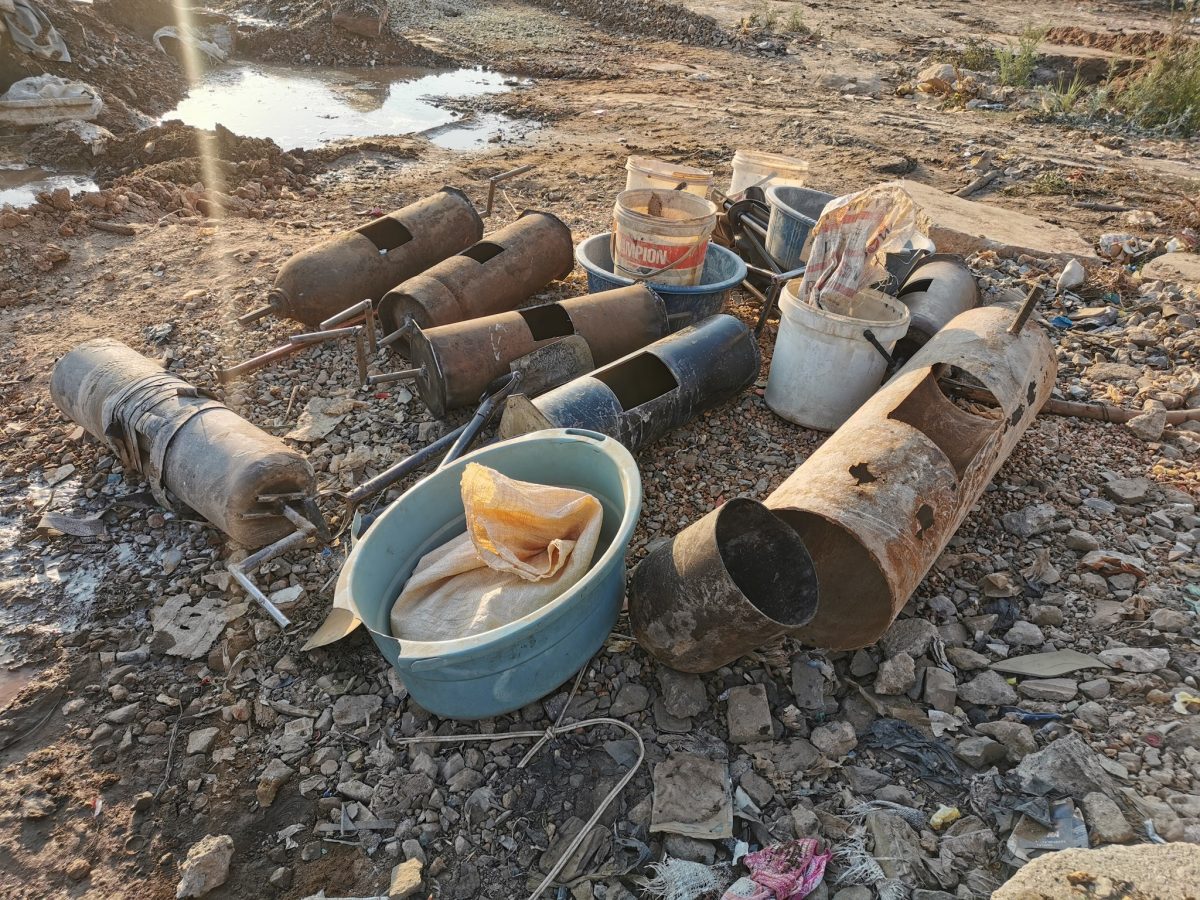The Environmental Management Agency (EMA) has said illegal mining activities are widespread across the country especially in the rural provinces, and it’s affecting the nation in a number of ways. It is estimated that there are over 1, 5 million small scale illegal gold panners across the country operating in rivers, plantations, grazing areas, fields, urban areas, road, rail, and electricity transmission servitudes; and many other areas of socio-economic importance.
A recent survey done by the Environmental Management Agency (EMA), suggest that a total of 11 163 ha of land and a stretch of 1 555km of riverine ecosystems have been degraded countrywide. Illegal mining activities create conflict in land use and have competing interests and claims with agricultural activities thereby affecting the food security of the country. Land degradation characterized by open pits and loss of key forestry species remains a threat to lives, infrastructure, river flows, and water quality and quantity.
Hot spots sites for illegal gold panning all over the country include areas such as Gadzema, Chakari, and Battlefields in Mashonaland West, Globe and Phoenix, Yorks and Wanderer in Midlands Province, Tarka Forest in Manicaland Province, Nugget and Vhovha in Matabeleland South Province, Kitsiyatota, Msasa, Jumbo, Mukaradzi and Rosa in Mashonaland Central Province, Mafuwa, Mushawasha West, Zifunzi Kushinga in Masvingo Province, and Bubi and Inyathi in Matabeleland North, just to name a few. Major river ecosystems and water bodies affected include
Mazowe river, Odzi and Angwa rivers, Kwekwe river, Munyati/Sanyati river, Umzingwane and Insiza rivers, and Ncema and Inyankuni dam catchments in Matabeleland South, Musengi river in Mashonaland West and Tokwe river in Masvingo,just to mention a few.
Veld fire trends over time have also shown a positive correlation between veld fire incidences and illegal gold mining activities. This has been attributed to the use of gold detectors which work better on bare surfaces hence clearing of patches of land using fire. The use of gold detectors by the illegal miners has also accelerated the rate of land degradation in that heavy machinery is used to rip up the land to allow for gold detection to take place, hence scaring the land.
The complexities of the groupings and fluidity characteristic of small scale mining reduce the effectiveness of interventions that the government and other stakeholders can put in place. Illegal mining trends tend to be very fluid on the ground as often illegal miners are very mobile and fugitive, thus effects of the activity are so fast, and very temporal and spatial. On that note, the Agency is currently doing an inventory on illegal mining as part of the regular updating of statistics, for the state of the environment reporting, and for decision making.
The Agency has also noticed that restrictions associated with the COVID 19 pandemic have ushered in complacency within the public resulting in the surge in environmental violations. On that note, the Agency in collaboration with other law enforcement agencies is seized with the obtaining situation and has put in place strategies to protect the environment from further
damage.
Several raids have been carried out recently at the confluence of Umzingwane and Insiza rivers in Matabeleland South, and currently, teams are on the ground to contain illegal mining activities in the Chimanimani mountains in Manicaland.
Investigations are also in progress to bring to book those behind illegal mining activities along Mazowe river in Chipwere village in UMP district; just to mention a few among many other interventions.
To that end, the Agency would like to assure the nation that plans are in place to contain the surge in illegal mining. It would actually be costly not to act, as land degradation, siltation and pollution of water bodies, destruction of infrastructure, the outbreak of diseases, and possible loss of lives will worsen. The cost of rehabilitation will be unbearably high, and the cost of this will always be borne by the Government and local communities who own and use the land.
On that note, communities are also urged to play their part in investing in security mechanisms to curb illegal mining, and also not joining in illegal mining but report such activities and all other environmental offences to law enforcement agencies. By so doing communities would be able to conserve their local resources for the benefit of the present and future generations, as well as protect the integrity of the environment.






